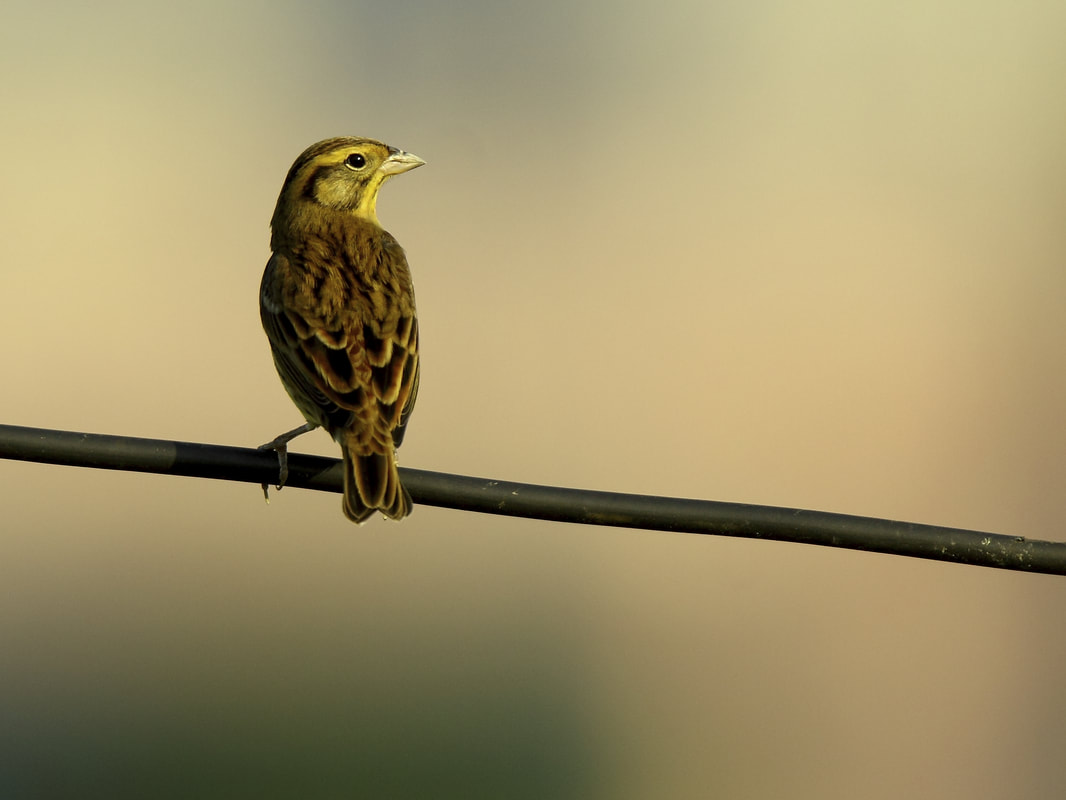|
Yellow-breasted Bunting/China and Global Conservation/Illegal Logging in Palawan THE YELLOW-BREASTED BUNTING On the recent (December 5th) update to the Red List of Threatened Species, the IUCN classified the status of Yellow-breasted Bunting as Critically Endangered. A press release issued by the Hong Kong Bird Watching Society – see http://www.hkbws.org.hk/BBS/viewthread.php?tid=26936 - notes that within 14 years the status of the species has been uplisted four times. This quick transition from Least Concern through Near Threatened (2004), Vulnerable (2008) and Endangered (2013) to Critically Endangered is indicative of a very steep decline in the population; indeed, a note in the recent (December 2017) edition of British Birds compares the situation of Yellow-breasted Bunting to that of the Passenger Pigeon and points out that an estimated 95% of the global population has disappeared in the span of two or three decades. The main reason for this decline is hunting in China. The birds migrate and roost in large flocks, making them easy to trap. They are a popular food item, even though their capture was made illegal in 1997. However, enforcement is lacking. The IUCN report on this species – see http://www.iucnredlist.org/details/22720966/0 - states that “a black market in birds still persists and a huge number of birds are still sold annually. In 2008, one shipment of 4,300 individuals of this species was reportedly confiscated in Zhejiang province en route to Guangdong province, and the species is said to remain a famous delicacy in southern China.” There have even been reports of the Yellow-breasted Bunting being for sale on the Taobao website. This is the Chinese equivalent of Ebay or Amazon and is part of the Alibaba group. Details of this, and the company’s recent decision to remove the seller’s pages from the website can be found at Terry Townshend’s Birding Beijing website – see https://birdingbeijing.com/2017/12/07/critically-endangered-yellow-breasted-buntings-for-sale-online-in-china/ CHINA AND GLOBAL CONSERVATION
The note on the Yellow-breasted Bunting on the Birding Beijing website makes reference to the speech President Xi Jinping delivered to the 19th Communist Party Congress in October 2017. The speech is very conservation oriented and argues for “a model of sustainable development featuring increased production, higher living standards, and healthy ecosystems. We must continue the Beautiful China initiative to create good working and living environments for our people and play our part in ensuring global ecological security.” This concern for the environment is evinced in China's policy of reducing reliance on fossil fuel, notably coal. It is now a leading investor in solar and wind energy, and recently delayed construction of more than 150 coal-fired electricity plants in China. However, Bill Laurance of James Cook University in Australia argues in an essay published in The Conversation and reprinted on the Hong Kong Free Press website that this expressed desire for “global ecological security” is belied by China’s actions abroad. Laurance refers to the fact that China is the world’s biggest consumer of illegally poached wildlife and wildlife products: to the fact that it is the world’s biggest importer of illegal timber; to the fact that China’s investment and pursuit of natural resources in South America is a big driver of tropical deforestation and environmental degradation in general. Laurance concludes that “China’s huge international ambitions will have some positive effects, and could even be economically transformative for certain nations. But many other elements will benefit China while profoundly damaging our planet.” See https://www.hongkongfp.com/2017/12/09/chinas-growing-footprint-globe-threatens-trample-natural-world/ for the full article. ILLEGAL LOGGING IN PALAWAN And finally, a link to an article in The Guardian – part of the newspaper’s regular coverage of environmentalists in the Third World – about a small group of concerned civilians trying to put a dent in illegal deforestation in Palawan. It makes for disturbing reading. See https://www.theguardian.com/environment/2017/dec/06/environmental-crusaders-risk-their-lives-to-save-philippine-paradise
0 Comments
|

 RSS Feed
RSS Feed
